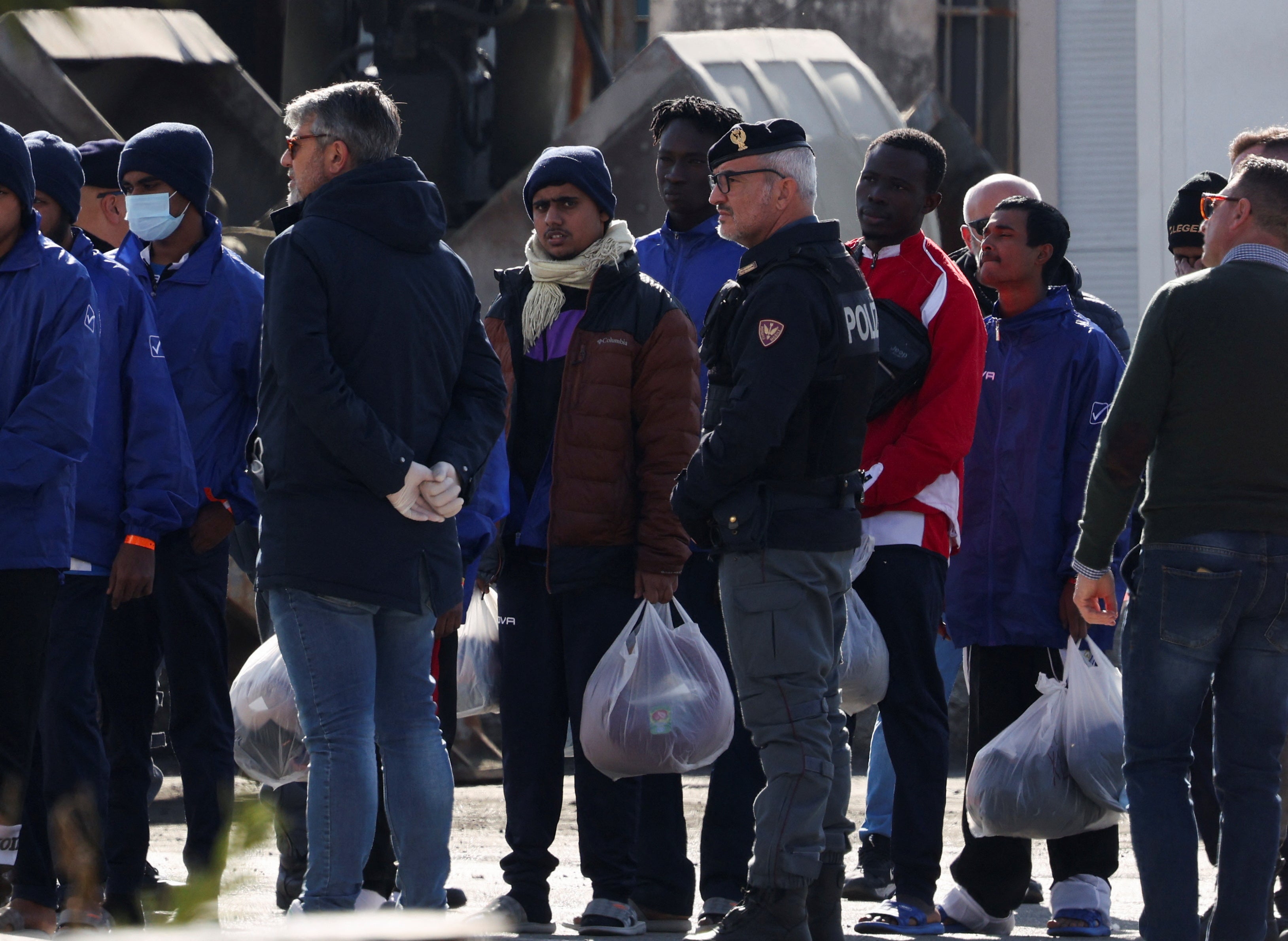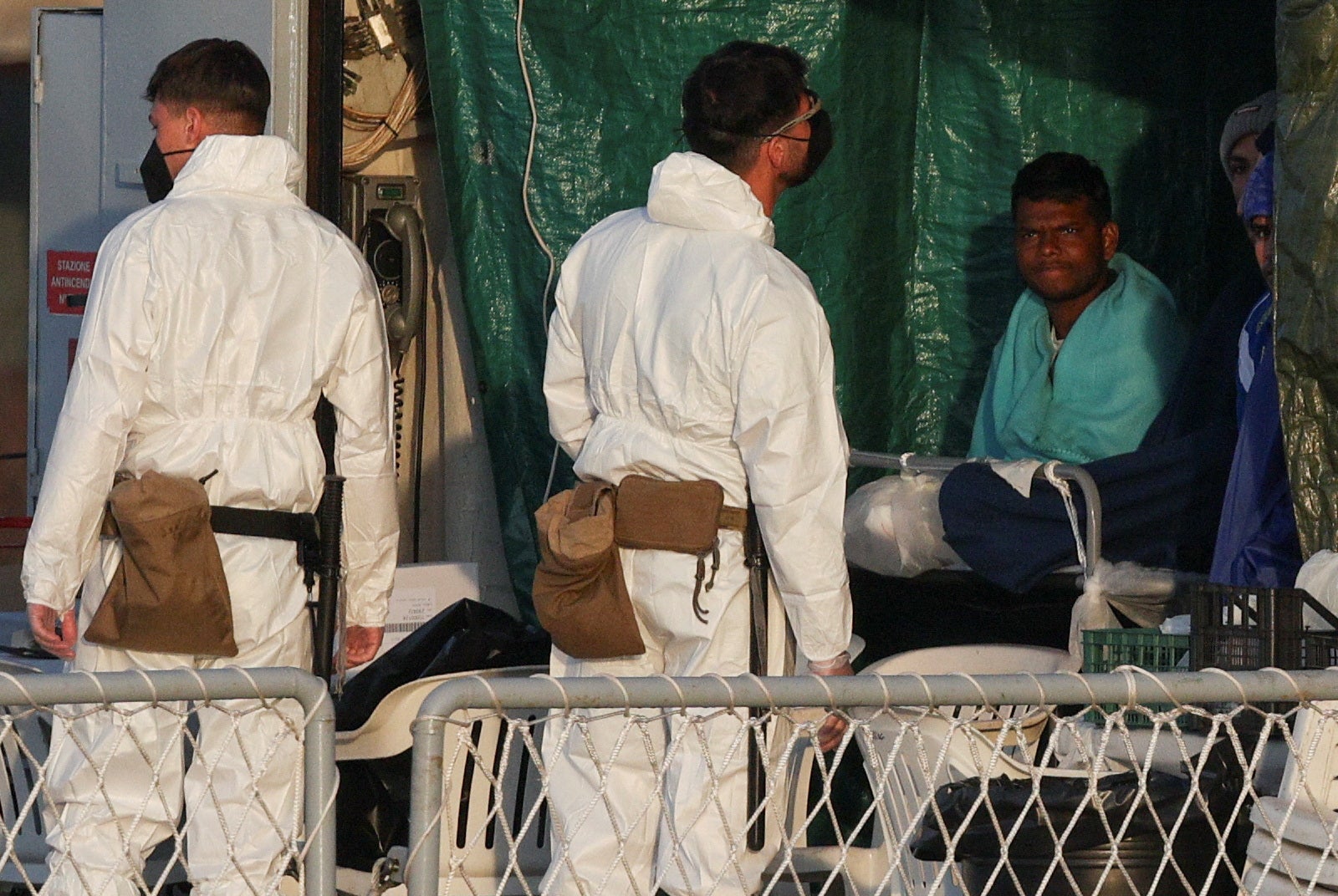
An Italian navy ship has dropped off 49 migrants in Albania after intercepting them in international waters, in the third attempt to carry out a contentious plan to relocate migrants to be processed under a deal between the two countries.
The attempt to process the migrants at special centres in Albania follows two failed attempts in October and November, when Italian judges refused to approve the detention of two small groups in the centres.
Cassiopea, the navy ship which picked up the migrants, reached the Albanian pot of Shengjin early on Tuesday, where they will be identified at a facility before being moved to a detention centre 20km (12 miles) away.

The nationality of this group of migrants in the port of Shengjin, 66 kilometres northwest of Albania’s capital of Tirana, was not specified by the Italian Interior Ministry. Italian media has reported that they were from Bangladesh, Egypt, Ivory Coast and Gambia.
Two reception centres in Albania have been built by the Italian government of Giorgia Meloni, in the first such deal by a European Nation to divert migrants to a non-EU country as it looks to limit arrivals via sea.
Judges in Rome have questioned the legality of the plan, with the first two batches of migrants detained in Albania afterwards relocated to Italy.
The judges’ rejection of the plan derives from a ruling by the European Court of Justice last year, unrelated to Italy, which found that a nation of origin could not be considered safe if even just a part of it was dangerous.

Italian courts therefore ruled that the migrants’ countries of origin weren’t safe enough for them to face the possibility of being sent back by the asylum processing centres, undermining the Melon government’s plan to repatriate them.
Ms Meloni’s position was partially backed by a late December ruling by Italy’s highest court, which said Italian judges could not substitute for government policy in deciding which countries are safe for repatriation of migrants, if their asylum requests are rejected.
Lower courts are therefore permitted to make such determinations on a case-by-case basis, but cannot set overall policy.
Ilaria Salis, a European Parliament deputy from a left-wing Italian party, condemned the Italian government for forcibly transferring “innocent people fleeing war and misery” despite violations of international law and human rights.
This year, 3,704 migrants have arrived in Italy, more than double the 1,305 from the same period last year.
The European court will review Italy’s plan in the following weeks to clarify whether it complies with EU law.







